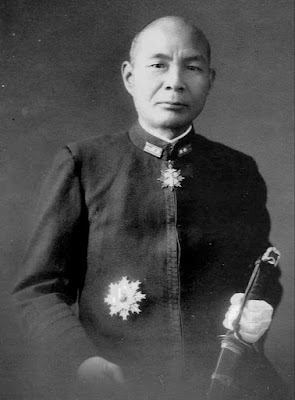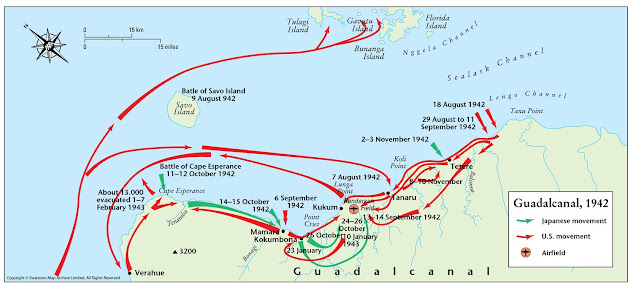An Incidental Superpower
Two of the three authors of U.S. Foreign Policy and Defense Strategy:
The Evolution of an Incidental Superpower spoke at the Eight Bells Lecture
held on October 29 in the Brett Hall Lounge.
One of the presenters was Derek
Reveron, Professor of National Security Affairs and the EMC
Informationist Chair at
the U.S. Naval War College. The other
was Nikolas
K. Gvosdev, a professor of national security studies at the
U.S. Naval War College.
The rise of U.S. dominance on the world stage since World War II found its basis in the decisions made conducting foreign policy, a defense strategy, and commercial activities with partners around the world. Following the war, the US promoted de-colonization and was generous to allies and the vanquished alike. Unlike in previous wars when victors extracted compensation from the defeated in the form of resources or territory, the United States sought to rebuild infrastructures and supply foodstuffs. Economically, this was good business and there was a direct benefit to the businessmen and farmers in the U.S.
The U.S. economy, unlike those of Europe and Asia, was in high gear after the war and largely unscathed. As a result, the post-war systems that were put in place were heavily influenced by the U.S. and, as described in the lecture, (the systems) spoke with an American accent. To this day, the U.S. dollar is the global reserve currency.
But, are the systems and alliances put in place over sixty-five years ago becoming sclerotic? Most definitely, some are becoming bloated and are no longer as responsive as when first implemented. Additionally, the reasons for having some of the systems no longer exist and Americans are beginning to question their value, especially when the beneficiaries of the efforts by the United States are military and economic competitors. Some commentators cite the changing nature of war and conflict as a reason for a re-evaluation of present policies, strategies, and military philosophy. Others foresee a neo-isolationism evolving.
This book and others are for sale in the Naval War College Foundation Store located in Brett Hall, first floor.
John W. Kennedy
Director of Education and Community Outreach
The rise of U.S. dominance on the world stage since World War II found its basis in the decisions made conducting foreign policy, a defense strategy, and commercial activities with partners around the world. Following the war, the US promoted de-colonization and was generous to allies and the vanquished alike. Unlike in previous wars when victors extracted compensation from the defeated in the form of resources or territory, the United States sought to rebuild infrastructures and supply foodstuffs. Economically, this was good business and there was a direct benefit to the businessmen and farmers in the U.S.
The U.S. economy, unlike those of Europe and Asia, was in high gear after the war and largely unscathed. As a result, the post-war systems that were put in place were heavily influenced by the U.S. and, as described in the lecture, (the systems) spoke with an American accent. To this day, the U.S. dollar is the global reserve currency.
But, are the systems and alliances put in place over sixty-five years ago becoming sclerotic? Most definitely, some are becoming bloated and are no longer as responsive as when first implemented. Additionally, the reasons for having some of the systems no longer exist and Americans are beginning to question their value, especially when the beneficiaries of the efforts by the United States are military and economic competitors. Some commentators cite the changing nature of war and conflict as a reason for a re-evaluation of present policies, strategies, and military philosophy. Others foresee a neo-isolationism evolving.
This book and others are for sale in the Naval War College Foundation Store located in Brett Hall, first floor.
John W. Kennedy
Director of Education and Community Outreach


Comments
Post a Comment